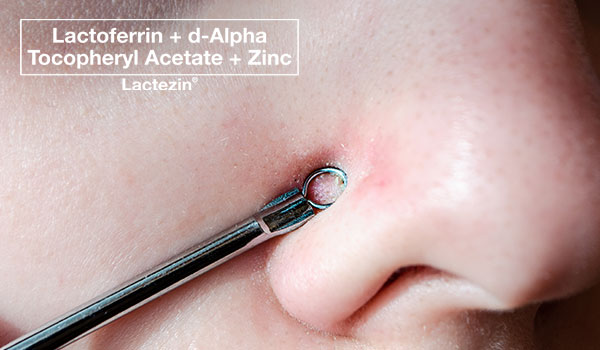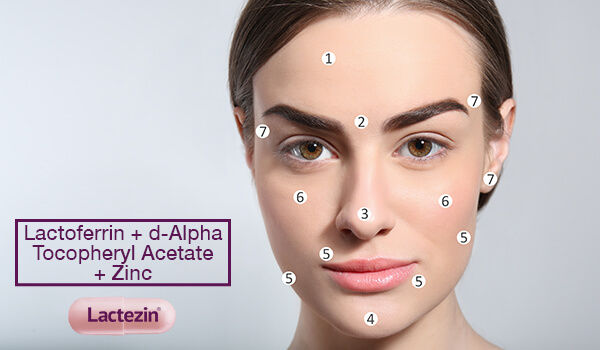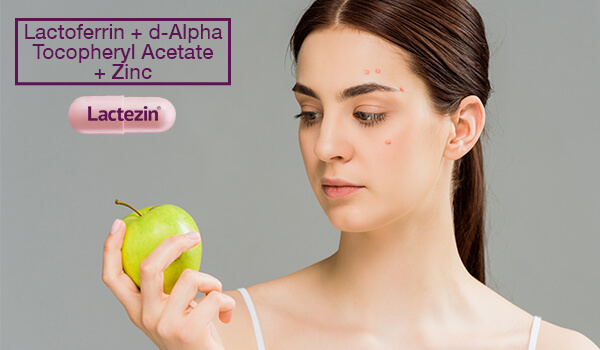Whiteheads on Nose: Causes and How to Get Rid of Them

As if pimples weren’t bothersome enough, we have to deal with whiteheads too– on our t-zones, more often than not. While they’re not as severe-looking, our skin is definitely better off without them.
What are whiteheads?
Whiteheads are easy to spot, the telltale sign being a small white bump on the surface of the skin. Also considered a type of acne, whiteheads are pores that stay closed at the surface of the skin, blocked by dead skin cells and excess sebum. They commonly occur on the nose and forehead but they can appear anywhere in the body, even on your chest, shoulders, arms, and back.
What causes whiteheads?
The best approach to treating whiteheads and any other skin condition is knowing first what causes whiteheads to help prevent future breakouts.
Having both dead skin cells and oil in your pores is normal. Dead skin cells occur naturally as your skin constantly produces new skin cells to replace them. Also, oil (sebum) is made in your pores and is supposed to keep your skin hydrated.
However, the combination of excess oil and dead skin cells can make your pores a breeding ground for whiteheads. This is why the nose and other oily parts of your T-zone are particularly vulnerable because this type of acne feeds on the over-production of oil.
Certain life stages, particularly puberty, pregnancy, menstruation, and menopause can increase the amount of sebum pores produce. Studies have also proven that genetics play a role in the formation of acne. If someone in your family suffered from it, you are most likely to have it too.
How to prevent whiteheads on the nose
Whiteheads can be treated but there are steps you can take to prevent them from forming in the first place. Remember: good skincare habits are essential to managing whiteheads and other types of acne.
1. Cleanse twice daily.
Use a gentle cleanser that thoroughly removes oil and dirt but doesn’t dry out your skin. When washing, pay extra attention to your nose and other whitehead-prone areas of your face.
2. Use cleansing wipes after sweating.
When you work up a sweat from being outside or working out, cleanse your nose with gentle facial wipes to prevent oil and sweat from clogging your pores. You don’t have to wash your entire face; just wipe off your nose and other areas as needed.
3. Exfoliate 1-2 times a week.
Exfoliating helps get rid of any excess skin cells that your pores can’t remove on their own. Use a gentle exfoliant on your entire face 1-2 times a week. Be careful of over-exfoliating– this can aggravate the oil glands and cause them to produce more pore-clogging oil.
4. Use non-comedogenic makeup.
If you’re breaking out, the natural urge with it is to cover it up with makeup, which isn’t a bad thing. But if you’re using thick, creamy, fragrance-loaded, comedogenic makeup then you may be making it worse. Heavy makeup aggravates already existing breakouts and can trigger more. So keep it light, oil-free, and clean.
5. Exercise regularly
Dedicate at least 30 minutes in your daily schedule for exercise. It has been proven that exercise reduces stress and cortisol levels in the blood which consecutively reduces the production of sebum.
Treating whiteheads from within with Lactezin
If topical treatments don’t work, try treating it with Lactoferrin + d-Alpha Tocopheryl Acetate + Zinc (Lactezin)! Lactezin is an over-the-counter drug powered by Lactoferrin, Vitamin E, and Zinc which all help treat different kinds of acne problems including whiteheads.
Lactoferrin + d-Alpha Tocopheryl Acetate + Zinc is the generic name of Lactezin. If symptoms persist, consult your doctor.
SOURCES:
https://diyremedies.org/whiteheads/
https://www.healthline.com/symptom/white-heads
https://www.bioclarity.com/pages/what-are-whiteheads
https://www.refinery29.com/en-us/2015/05/88075/how-to-get-rid-of-whiteheads#slide-1


